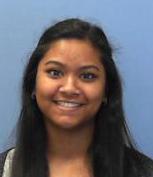Below is a summary of the abstract you submitted. Presenting author(s) is shown in bold.
If any changes need to be made, you can modify the abstract or change the authors.
You can also download a .docx version of this abstract.
If there are any problems, please email Dan at dar78@pitt.edu and he'll take care of them!
This abstract was last modified on May 5, 2017 at 3:48 p.m..

The University of the Sciences is an affiliate within a consortium of researchers at the Howard Hughes Medical Institute working to expand the knowledge surrounding bacteriophages. Current methods of phage isolation often select for the discovery of well-characterized phages. DOGEMS (Deconvolution of Genomes after En Masse Sequencing) is a new technique that was utilized to sequence multiple unique phages simultaneously rather than sending a single bacteriophage to be sequenced. This technique increases the likelihood of sequencing unique bacteriophages. DNA from 11 different phages was isolated and purified, then pooled together for sequencing. The result was three fully-assembled, complete DNA sequences from B2, B3 and D1 cluster phages. Using PCR and restriction enzyme digestions, the 3 unique clusters corresponded to phages Sabella, RomaT, and Visconti, all present in the original pooled sample. In silico studies were conducted to annotate and determine distinctive functions and proteins such as PAR B. However, based on the novelty of the clusters, many of the gene products lack known functions. These unique clusters are generally unexplored, providing an excellent opportunity for future research. Continuing to use DOGEMS in the future will allow more comprehensive study of unique bacteriophages in the future.


